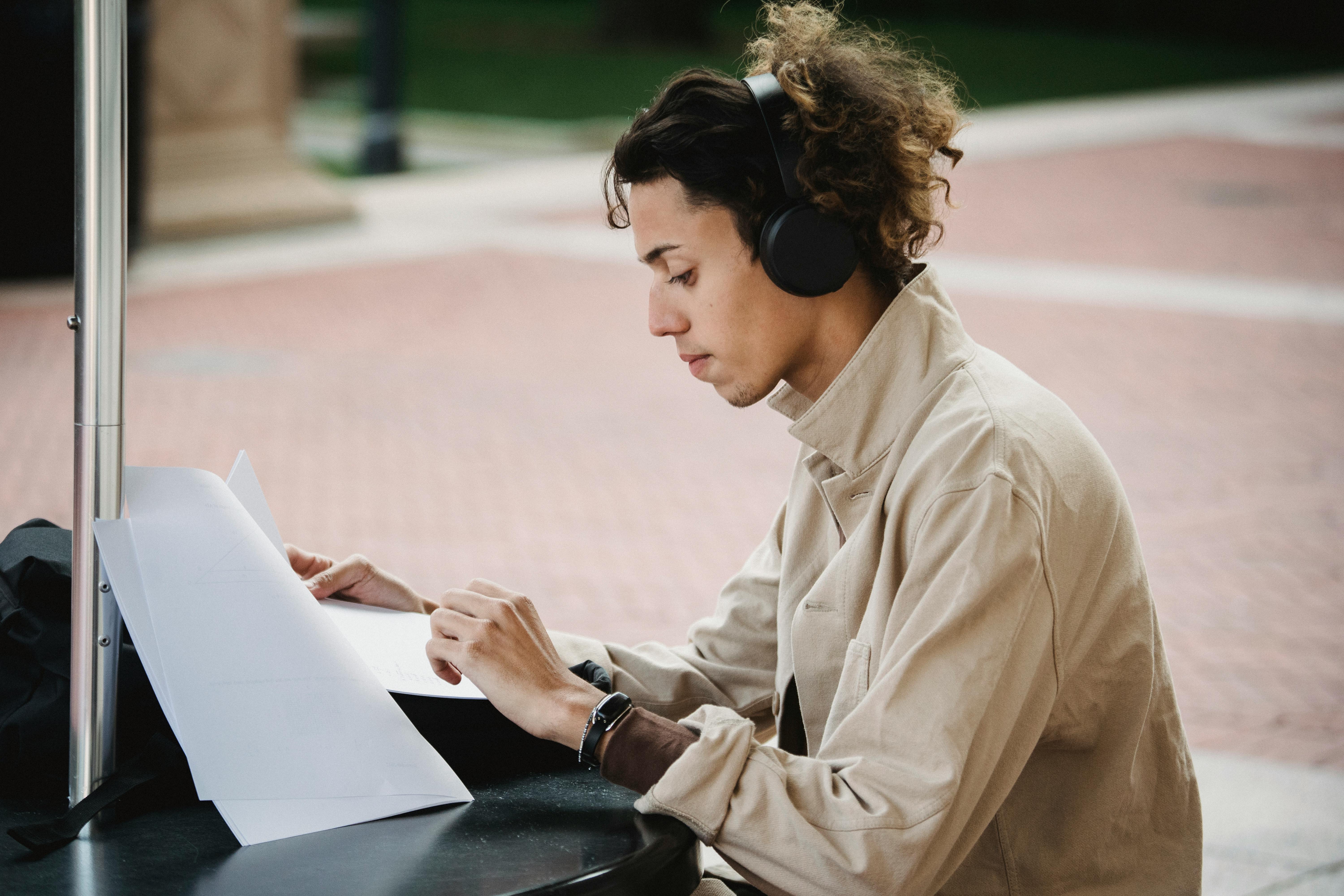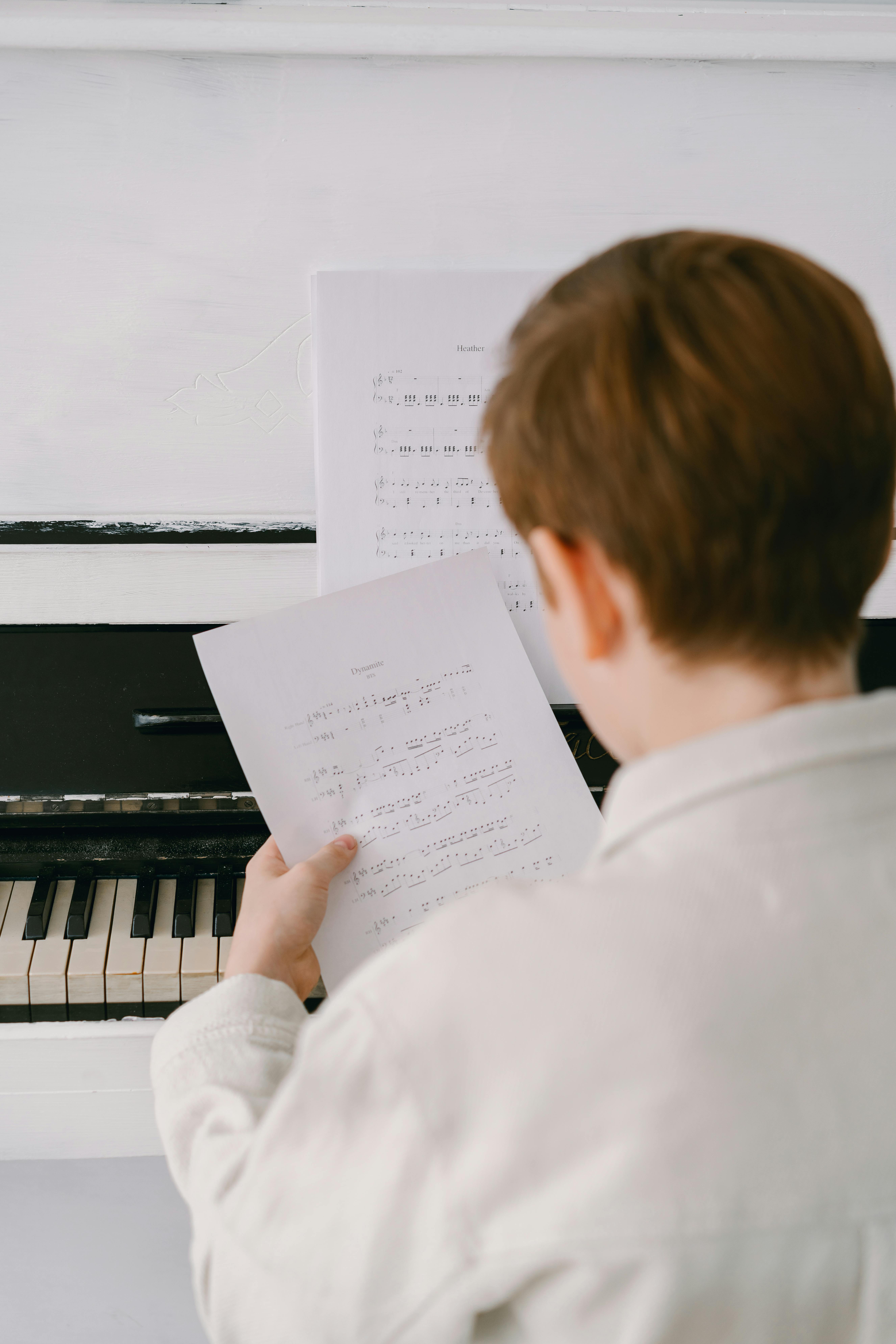
I. Introduction
In today’s fast-paced world, the ability to focus while studying has become a precious commodity. Students often find themselves fighting against a barrage of distractions, from social media notifications to the clamor of everyday life. This struggle for concentration can leave one feeling overwhelmed and unproductive. Enter music—a familiar companion that has the potential to transform study sessions from chaotic to harmonious. The purpose of this article is to delve into the fascinating ways music can enhance focus and create an environment conducive to learning.
Imagine sitting at your desk, surrounded by textbooks and notes, but your mind is wandering to the latest episode of your favorite show. Now, picture the same scene, but with soft instrumental music playing in the background. Suddenly, the words on the page seem to come alive, and your thoughts flow more freely. This transformative power of music isn’t just anecdotal; it’s backed by science and real-life experiences. By exploring the relationship between music and focus, we uncover a valuable tool that can help students of all ages unlock their potential.
II. The Science of Music and Focus
To truly appreciate how music can enhance focus, it’s essential to understand what happens in our brains when we listen to it. Music triggers the release of neurotransmitters like dopamine, which plays a key role in mood regulation. According to a study published in the journal *Nature Neuroscience*, listening to music can increase dopamine levels, leading to feelings of pleasure and motivation. This biochemical response can create a positive feedback loop, where the more motivated you feel, the better you can concentrate on your studies.

Moreover, research has shown that specific types of music can boost cognitive functions. A study from the *Journal of Experimental Psychology* found that students who listened to background music while studying performed better on tasks requiring focus than those who studied in silence. The evidence suggests that music doesn’t just mask distractions; it can actively enhance learning by engaging the brain in a more profound way. In short, the right playlist can be your secret weapon against procrastination.
III. Types of Music That Enhance Focus
Now that we’ve established the connection between music and focus, let’s explore the types of music that can be most beneficial for studying. First up is instrumental music. Classical compositions, with their rich harmonies and structured rhythms, have long been praised for their ability to promote concentration. A study conducted by the *University of Maryland* found that students who listened to classical music while studying exhibited improved cognitive performance and retention of information. The absence of lyrics allows the mind to wander without the risk of distraction, creating an ideal backdrop for learning.

Another genre that has gained traction among students is Lofi Hip-Hop and Chill Beats. This genre has exploded in popularity thanks to online streaming platforms, providing a steady stream of mellow tunes that create a relaxed atmosphere. The repetitive nature of Lofi beats can help establish a rhythm conducive to studying. Research from *Sound and Music* indicates that this type of music can lower anxiety levels, making it easier for students to delve into their studies without feeling overwhelmed. Pairing these soothing sounds with your textbooks might just be the key to a serene study session.
IV. Creating the Perfect Study Playlist
Crafting the perfect study playlist is an art form in itself. When selecting music, consider factors such as tempo and rhythm. Studies have shown that music with a tempo of around 60-80 beats per minute can stimulate brainwaves associated with relaxation and focus. Additionally, it’s important to weigh the benefits of instrumental music versus music with lyrics. While some may thrive with lyrical tunes, others might find them distracting. A study by the *Journal of Music Therapy* highlighted that personal preference plays a significant role in the effectiveness of music for concentration.

For those looking for curated playlists, popular streaming platforms offer a variety of options tailored specifically for studying. From Spotify’s “Deep Focus” to Apple Music’s “Chill Study Beats,” these playlists are designed to enhance your study experience. However, personalizing your playlist can be equally rewarding. Experiment with different genres and tempos to find what resonates with you. Whether you prefer the grandiosity of orchestral pieces or the laid-back vibes of acoustic guitar, your playlist should reflect your unique taste and study needs.
V. Overcoming Distractions with Music
One of the most practical benefits of music during study sessions is its ability to mask background noise. Whether it’s the sound of a bustling café or the chatter of a roommate, music can create a bubble of concentration. A study published in *Psychology of Music* found that students who listened to music while studying were less distracted by environmental noises, leading to increased focus and productivity. This can be especially useful for those who study in less-than-ideal conditions.

Establishing a routine with music can also foster consistency in your study habits. By associating specific playlists with your study time, your brain begins to recognize the cues for focus. Additionally, music can serve as a tool for managing anxiety during study sessions. According to a survey by the *American Psychological Association*, students who incorporated music into their study routines reported lower levels of anxiety and stress. This psychological benefit can be a game changer, allowing you to approach your studies with a calm and collected mindset.
VI. Potential Drawbacks of Using Music for Studying
While the advantages of music are compelling, it’s essential to consider situations where it might hinder focus. For tasks that require deep concentration, such as complex problem-solving or writing, music might be more of a distraction than a help. A study from the *Journal of Cognitive Neuroscience* indicated that while background music can enhance creativity, it can also impede focused attention on intricate tasks. A balance is necessary; knowing when to embrace the sounds and when to embrace silence is crucial.

Individual differences in music preferences also play a significant role in how effective music is for studying. What works wonders for one person may be a distraction for another. It’s essential to find your own sweet spot. In the journey of balancing music with silence, consider alternating between periods of studying with music and brief moments of silence to recharge your mental batteries. This approach can help you navigate the fine line between focus and distraction.
VII. Real-Life Testimonials and Examples
To truly appreciate the impact of music on studying, let’s look at some real-life testimonials from students and educators. Sarah, a college sophomore, swears by her Lofi playlists. “I used to struggle with anxiety during finals, but once I started listening to chill beats while studying, it transformed my entire experience. I feel so much more relaxed and focused,” she shares. Similarly, Mr. Thompson, a high school teacher, has noticed a significant improvement in his students’ engagement during study periods when soft instrumental music is played in the background. “It creates a calm atmosphere, and I can see the difference in their focus and retention,” he says.
Success stories abound, from students acing their exams to educators adopting music as a tool for enhancing learning environments. These anecdotal accounts, combined with scientific research, paint a compelling picture of music’s potential to elevate academic performance. As more students discover the benefits of music for studying, it’s clear that this ancient art form remains relevant in our modern educational landscape.
VIII. Conclusion
In conclusion, the transformative power of music in study sessions cannot be understated. Whether it’s the soothing strains of classical music or the mellow beats of Lofi Hip-Hop, music has the potential to enhance focus, reduce anxiety, and create an environment where learning can thrive. As we wrap up our exploration, I encourage you to experiment with different types of music and see what resonates with you personally. Each study session is an opportunity to discover the perfect soundtrack that complements your learning journey.
So, why not start integrating music into your study routine today? Whether you’re prepping for finals or diving into a new topic, let the rhythm guide you toward success. Remember, the right playlist might just be the key that unlocks your full potential.
IX. Frequently Asked Questions (FAQ)
What type of music is best for studying?
Instrumental music, classical compositions, and Lofi Hip-Hop are popular choices that can enhance focus and create a conducive learning environment.
Can I use music with lyrics while studying?
Yes, but it depends on individual preferences. Some people find lyrics distracting, while others can concentrate better with them. Experiment to see what works for you!
How loud should the music be during study sessions?
The volume should be set to a level that is comfortable and unobtrusive. It should enhance your focus, not overpower your thoughts.
Are there specific genres that are more effective?
Genres like classical, ambient, and chill beats are generally more effective for studying, as they tend to be less distracting than music with lyrics.
How do I create my own study playlist?
Start by selecting music that you enjoy and find relaxing. Consider tempo, rhythm, and whether you prefer instrumental or lyrical tracks, and curate a mix that enhances your concentration.
Forward Head Posture FIX
Forward Head Posture Fix is 10 simple exercises that will instantly restore balance and improve your posture making you physically stronger, mentally sharper, and help you to achieve peak performance and overall better health.
Natural Synergy: Health Product With Epic 75-90% Comms & $1.89 EPCs!
Natural Therapy With Killer VSL & Captivating Hook That Converts Like Crazy For Both Health & PD Niches! Powerful Therapy Based On Acupuncture. HUGE 75-90% Comms On Front & Back End Sales, Plus High Uptake Monthly Recurrings!








